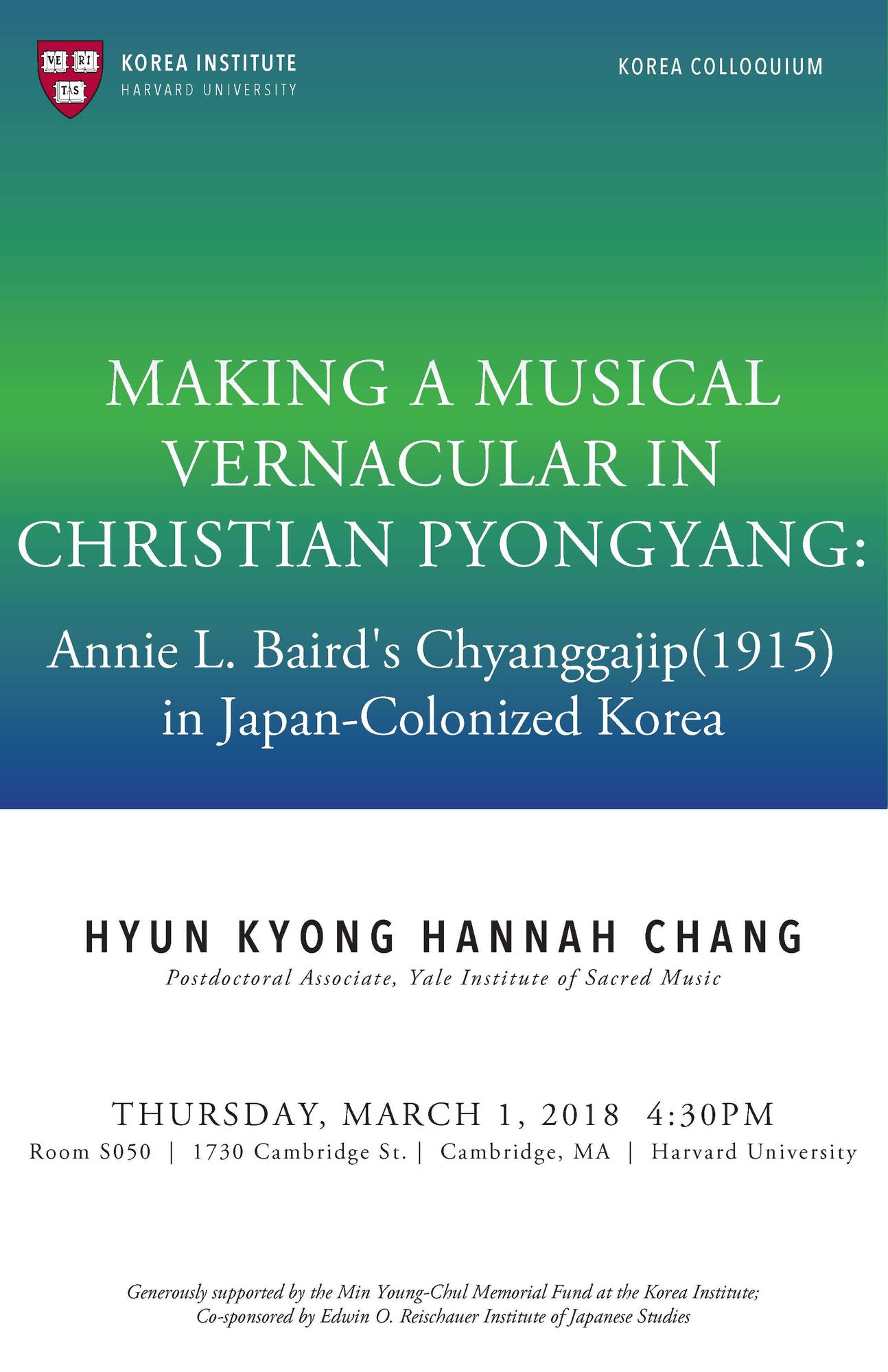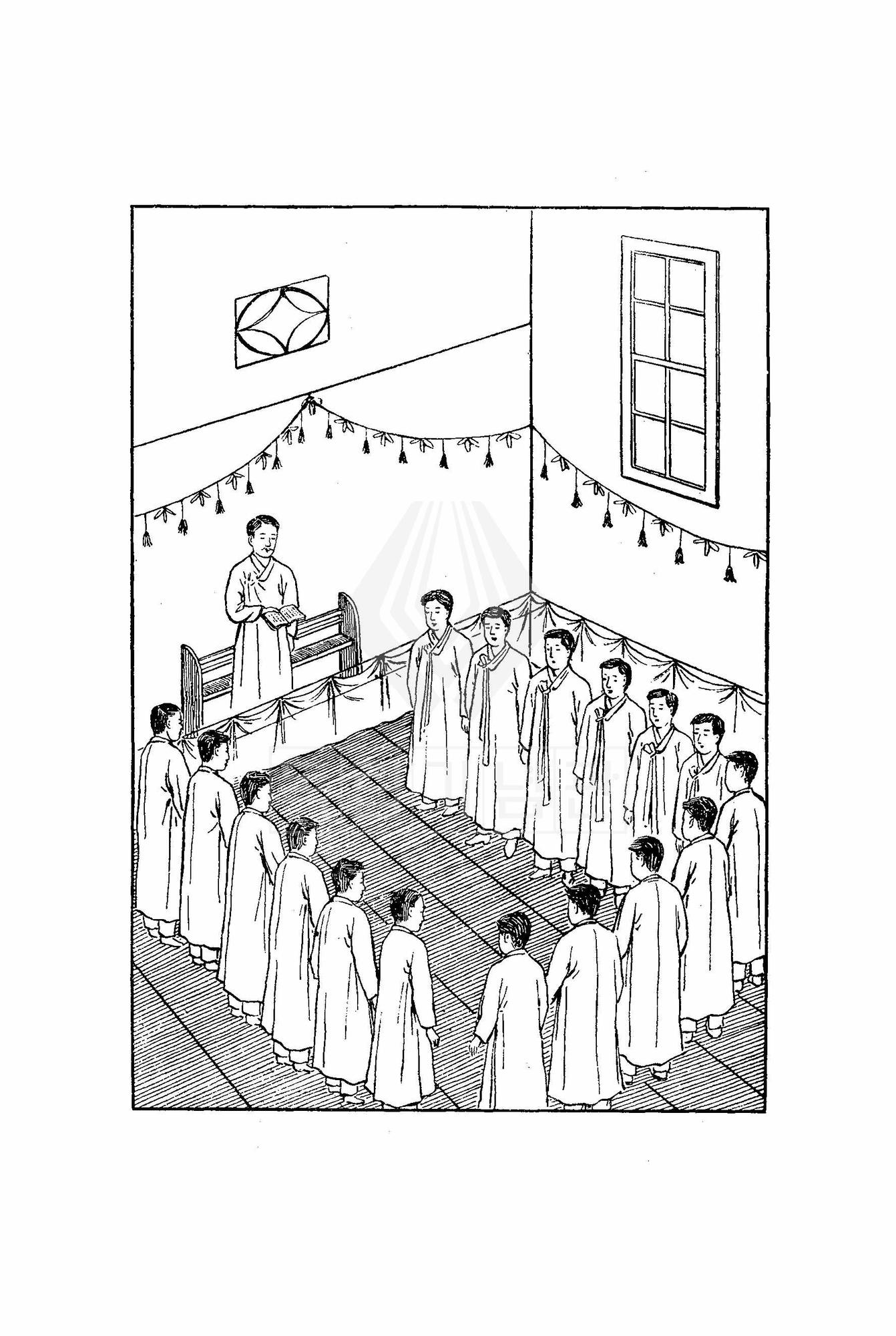Date:
Location:
Korea Colloquium; co-sponsored by the Edwin O. Reischauer Institute of Japanese Studies

Hyun Kyong Hannah Chang
Postdoctoral Associate, Yale Institute of Sacred Music
Hyun Kyong Hannah Chang is a music historian with research interest in music historiography, religion, and intellectual history of modern East Asia, with an emphasis on Korea. She completed her Ph.D. in Musicology at UCLA in 2014. Her research has received support from the American Musicological Society, the UCLA International Institute, the Ewha Music Research Institute, and the Yale Institute of Sacred Music. She is currently a Postdoctoral Fellow at the Yale Institute of Sacred Music. Her book-in-progress traces the emergence of early Korean Protestant vocal expressions—translated hymns, newly-composed Christian boat songs, and audible confessional prayers in communal settings, among others—in a network of institutions influenced by American missionaries across northern Korea, from the outbreak of the first Sino-Japanese War through the first decade of the Japanese rule of Korea (1894-1919). From her research emerges an illustration of a space of diffuse resistance in which re-signified vocal forms channeled commoner interests at a time of Korea’s incorporation into “world history.” Her next project is on the musical mobilization of the proletarian movement in Korea and Japan during the decades of Japan’s imperial expansion.
Chaired by Nicholas Harkness, John L. Loeb Associate Professor of the Social Sciences, Harvard University
Abstract:
When one scrutinizes the trajectories of first-generation Korean composers and vocalists of Western music, some common experiences come into view. An overwhelming majority became interested in Western music through interactions with North American missionaries in churches, and many of them also passed through Pyongyang’s Sungsil, an institution of higher education founded by the American Presbyterian missionary William M. Baird in 1897. Through an examination of music education in Sungsil in the 1910s, this talk explores the intersection of music education, Christianity, and politics in Pyongyang in the first decade of the Japanese rule of Korea, when missionary-influenced institutions functioned as alternative sites of Korean mobilization and when Pyongyang was becoming the mainstay of Korean Protestantism. I focus on the songbook Chyanggajip (1915), compiled by Annie L. Baird—a teacher at Sungsil and a missionary known for her expertise in Korean language—in collaboration with Kim Jagyeong, who provided a rich array of folk-inspired illustrations for the book. Published in Pyongyang and presently housed in South Korea’s Independence Hall, this 1915 collection of moralistic secular songs and Protestant hymns provided a model of a new musical vernacular by fusing Euro-American vocal music, Korean script, and images of belonging for aspiring Korean students in Sungsil, some of whom created their own songbooks. I also situate Chyanggajip alongside contemporaneous Japanese-, American-, and Korean-authored songbooks circulating in Korea, which were parts of a broader ecosystem of curricular publications through which the Government-General of Korea and the North American religious mission played a contest over educational authority in Korea in the 1910s. I argue that music education in Sungsil constituted a site of diffuse resistance that facilitated distinct Christian-affiliated music cultures across Korea, from the explicitly nationalist practice in northern Korea to the more cosmopolitan one in Seoul’s YMCA. Through this examination, I demonstrate the transnational genealogy of Christian and Christian-influenced vocal music in Korea and reappraise an episode in modern Korean history that has captivated South Korea’s nationalist historiography at different points in the post-division period.
Generously supported by the Min Young-Chul Memorial Fund at the Korea Institute.